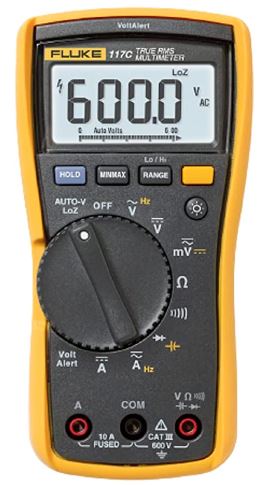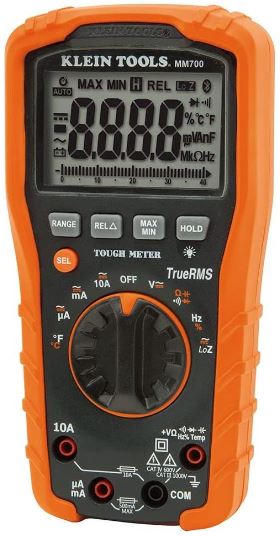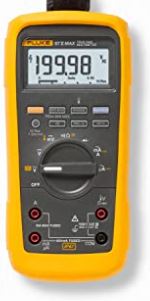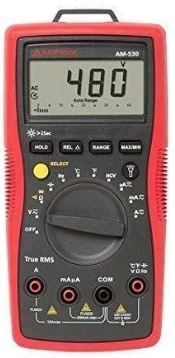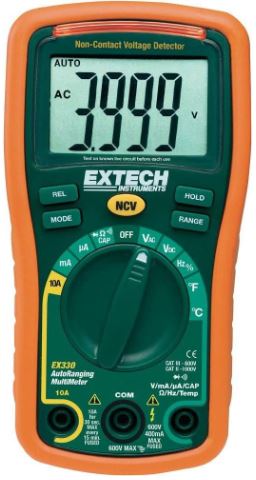Choosing the best multimeter for your electrical work can be a challenging task. To help you make an informed decision, we have reviewed the top 5 multimeters for electricians available in the market. In this article, we will provide you with the pros and cons of each multimeter.
What to Consider
When purchasing a multimeter, it is essential to consider several factors to ensure you acquire a device that meets your specific needs and requirements. A multimeter is a versatile instrument used by electricians, technicians, and hobbyists to measure electrical properties such as voltage, current, and resistance. Here are some crucial aspects to keep in mind while choosing a multimeter:
- Accuracy and Resolution: Accuracy refers to how closely a multimeter’s reading matches the true value of the quantity being measured, while resolution indicates the smallest change in value that the device can detect. Higher accuracy and resolution are essential for professional or critical applications. However, for most home users and hobbyists, a multimeter with moderate accuracy and resolution should suffice.
- Measurement Range and Functions: Consider the range of electrical properties you need to measure and ensure the multimeter you choose covers those ranges. Basic multimeters typically measure voltage, current, and resistance, while more advanced models may include additional functions such as capacitance, frequency, temperature, and diode testing. Select a multimeter with the appropriate functions for your intended use.
- Safety Features: Safety is paramount when working with electricity. Look for a multimeter that meets safety standards such as IEC 61010 or UL 61010. These certifications indicate that the device has been tested for safety and can handle specific voltage levels and category ratings. Additionally, features like overload protection, input alerts, and sturdy casing can help prevent accidents and damage to the multimeter.
- Price and Brand Reputation: Multimeters are available at various price points, from budget-friendly options to high-end models. While it’s tempting to go for the cheapest option, it’s crucial to balance cost with quality, features, and safety. Research reputable brands known for producing reliable and accurate multimeters to ensure you’re making a wise investment.
1. Fluke 117 Electricians True RMS Multimeter
The Fluke 117 is a top-of-the-line multimeter that offers accurate measurements and a user-friendly interface. It has a built-in non-contact voltage detector, making it easy to detect live wires without having to touch them. Additionally, it offers a backlit display for easy reading in low-light conditions. It’s a reliable and durable tool that can withstand the rigors of everyday use.
Pros
- Built-in non-contact voltage detector
- Backlit display for easy reading in low-light conditions
- Reliable and durable tool
Cons
- Relatively expensive compared to other options
- Limited functionality compared to more advanced multimeters
2. Klein Tools MM700 Auto-Ranging Digital Multimeter
The Klein Tools MM700 is another great option for electricians. It features an auto-ranging function that automatically selects the correct measurement range, making it easy to use for both beginners and professionals. It also has a true RMS feature that provides accurate measurements even in non-linear loads. The MM700 has a sturdy build and is designed to withstand a 10-foot drop.
Pros
- True RMS feature for accurate measurements
- Sturdy build and designed to withstand a 10-foot drop
- Easy to use with user-friendly interface
Cons
- Not as advanced as some other multimeters
- Limited functionality compared to more advanced multimeters
3. Fluke 87V MAX True-RMS Digital Multimeter
The Fluke 87V MAX is a heavy-duty multimeter that can handle even the toughest jobs. It has a rugged design and is waterproof and dustproof, making it suitable for use in harsh environments. The 87V MAX offers a true RMS feature for accurate measurements and a large display for easy reading. It also has a built-in thermometer that allows you to measure temperature without the need for a separate tool.
Pros
- Waterproof and dustproof, suitable for use in harsh environments
- True RMS feature for accurate measurements
- Built-in thermometer for measuring temperature
Cons
- Expensive compared to other options
- May have more features than necessary for some users
4. Amprobe AM-530 TRMS Electrical Contractor Multimeter
The Amprobe AM-530 is a versatile multimeter that offers accurate measurements for both AC and DC voltages. It has a true RMS function for accurate readings in non-linear loads, and a built-in flashlight for use in low-light conditions. The AM-530 is built to withstand a 6-foot drop and has a sturdy design for everyday use.
Pros
- True RMS function for accurate readings in non-linear loads
- Built-in flashlight for use in low-light conditions
- Sturdy design for everyday use
Cons
- May not be as advanced as other multimeters
- May be more expensive than other entry-level multimeters
5. Extech EX330 Autoranging Mini Multimeter
The Extech EX330 is a compact and affordable multimeter that offers accurate measurements and a user-friendly interface. It has an auto-ranging function that selects the correct measurement range automatically, making it easy to use for both beginners and professionals. The EX330 also features a built-in non-contact voltage detector and a backlit display for easy reading in low-light conditions.
Pros
- Auto-ranging function selects the correct measurement range automatically
- Built-in non-contact voltage detector
- Backlit display for easy reading in low-light conditions
Cons
- May not be as durable as more expensive options
- Limited functionality compared to more advanced multimeters
Choosing the right multimeter for your electrical work depends on your specific needs and budget. Each of the multimeters we have reviewed offers its own set of pros and cons. We hope that this review has helped you make an informed decision and find the best multimeter for your needs.
FAQ
What multimeter do electricians use?
There are many multimeters that electricians use, but some of the most popular brands include Fluke, Klein Tools, and Amprobe.
What is the best multimeter for a journeyman?
The best multimeter for a journeyman depends on their specific needs and budget. Some popular options for journeyman electricians include the Fluke 117 Electricians True RMS Multimeter and the Klein Tools MM700 Auto-Ranging Digital Multimeter.
Are cheap multimeters any good?
While cheap multimeters may be tempting due to their low price, they often lack accuracy and durability. It’s usually best to invest in a higher-quality multimeter for better accuracy and longer lifespan.
Why are Fluke multimeters so expensive?
Fluke multimeters are often more expensive due to their high level of accuracy, durability, and reliability. Fluke is known for producing high-quality multimeters that are designed to last for many years.
What is the easiest multimeter to use?
The easiest multimeter to use depends on the user’s experience level and needs. Some multimeters, like the Klein Tools MM700, are designed to be user-friendly and easy to operate.
Is Klein as good as Fluke?
While both Klein Tools and Fluke are popular brands of multimeters, they each have their own strengths and weaknesses. Some Klein Tools multimeters may not have as many features as Fluke multimeters, but they are often more affordable and still provide accurate readings.
How much should I spend on a multimeter?
The amount you should spend on a multimeter depends on your specific needs and budget. Entry-level multimeters can cost as little as $20, while more advanced multimeters can cost several hundred dollars.
What is the difference between Cat 3 and Cat 4 multimeters?
Cat 3 and Cat 4 multimeters are rated for different levels of voltage and protection. Cat 3 multimeters are rated for up to 600 volts, while Cat 4 multimeters are rated for up to 1,000 volts. Additionally, Cat 4 multimeters provide more protection against electrical surges and transient voltages.
Additional Resources
For further information on related topics, consider exploring the following resources:
Three Phase Motors Explained in 10 Minutes
How to: Wiring a Three Way Switch Using NM Cable
Wiring a 4 Way Switch: Step by Step Guide
Ceiling Fans: Wiring and Installation
Common Capacitor Types and Their Functions
